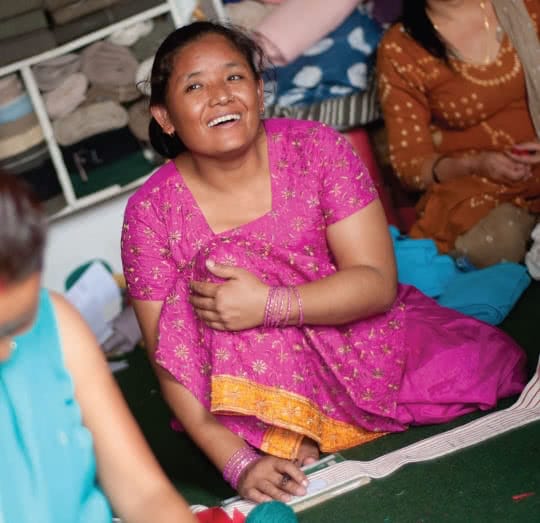
WIEGO has had and continues to play an important role in the development of statistics on all aspects of the informal economy.
Workshops Convened
- Regional training courses on Statistics on Informality: Informal Economy, Work and Employment were held in July 2015, October 2017 and November 2023 at the Statistical Institute for Asia and the Pacific (SIAP) in Chiba, Japan. These regional courses aimed to promote and improve the collection of statistics on informal employment and employment in the informal sector as an integral part of national labour force statistics in Asia and the Pacific. The course was organized by the Statistical Institute for Asia and the Pacific (SIAP), a regional institution of the United States Economic and Social Commission for Asia and Pacific (ESCAP), in collaboration with the Statistics Division of ESCAP, International Labour Organization (ILO); WIEGO; and the Ministry of Internal Affairs and Communications, Government of Japan (MIC). In the first training course, 22 statisticians and Labour Ministry officials participated from 13 Asian countries: Bhutan, China, Fiji, India, Indonesia Malaysia, Maldives, Mongolia, Pakistan, Philippines, Solomon Islands, Sri Lanka, and Thailand. In the second course, 25 statisticians and Labour Ministry officials participated from 14 Asian countries: Brunei Darussalam, Cambodia, China, Fiji, India, Indonesia, Lao PDR, Myanmar, Mongolia, Philippines, Samo, Sri Lanka, Thailand, and Viet Nam. The third course had 24 participants from 15 countries.
- The Power of Statistics – In concert with SEWA’s 40th anniversary celebrations, WIEGO co-hosted a workshop in December, 2012 in New Delhi. The Power of Statistics showcased the joint efforts of SEWA, the WIEGO network, and the International Expert Group on Informal Sector Statistics (the Delhi Group) to make women and men in informal economy visible internationally as a first step towards integration into the mainstream economy.
- Workshop on Measuring Informal Employment in Developed Countries – October/November 2008, Harvard Kennedy School, Cambridge Massachusetts, USA. This workshop brought together producers and users of statistics on employment to explore possibilities and challenges involved in capturing, within official statistics, the varied forms of informal and/or non-standard employment – short-term, temporary, contracted, etc.– across developed countries. See the meeting report and List of Meeting Documents and Presentations.
- Workshop on Informal Sector Statistics in Latin America – October 16-18, 2001 in Santiago, Chile in collaboration with ILO/Latin America. Seven Latin American countries participated to assess progress and gaps in the measurement of the informal sector in the region.
- Statistical Planning Meeting – June 7-8, 2002 to discuss future work to improve statistics in the informal economy, in particular to identify users’ needs and the technical requirements of meeting them.
Main Publications Prepared
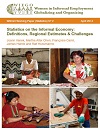 Statistics on the Informal Economy: Definitions, Regional Estimates and Challenges,
Statistics on the Informal Economy: Definitions, Regional Estimates and Challenges,
WIEGO Working Paper No. 2, by Joann Vanek, Martha Chen, Francoise Carré, James Heintz and Ralf Hussmanns, 2014. This publication contains the updated regional estimates of informal employment. The estimates were prepared by James Heintz using a more robust analytic method and
based on data from many more countries than the 2002 publication.
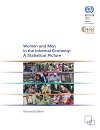 Women and Men in the Informal Economy: A Statistical Picture(second edition), an ILO/WIEGO publication, 2013. This publication builds on the 2002 edition but does not contain the regional estimates. Instead it presents more detailed data on informal employment and employment in the informal sector for 42 countries plus 6 cities in China and two provinces of Indonesia and on categories of informal workers.
Women and Men in the Informal Economy: A Statistical Picture(second edition), an ILO/WIEGO publication, 2013. This publication builds on the 2002 edition but does not contain the regional estimates. Instead it presents more detailed data on informal employment and employment in the informal sector for 42 countries plus 6 cities in China and two provinces of Indonesia and on categories of informal workers.
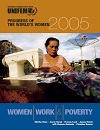 Progress of the World’s Women 2005: Women, Work and Poverty by Martha Chen, Joann Vanek, Francie Lund, and James Heintz with Renana Jhabvala and Christine Bonner – This publication, prepared for UNIFEM as the 2005 edition of its flagship publication, with support from UNDP and the ILO, presents new analytic frameworks and data on the links between informal employment, poverty and gender inequality.
Progress of the World’s Women 2005: Women, Work and Poverty by Martha Chen, Joann Vanek, Francie Lund, and James Heintz with Renana Jhabvala and Christine Bonner – This publication, prepared for UNIFEM as the 2005 edition of its flagship publication, with support from UNDP and the ILO, presents new analytic frameworks and data on the links between informal employment, poverty and gender inequality.
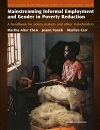 Mainstreaming Informal Employment and Gender in Poverty Reduction by Martha Chen, Joann Vanek, and Marilyn Carr (2004) – Prepared for the Commonwealth Secretariat, this includes a compilation and analysis of the available data on gender segmentation in the informal economy, earnings and the risk of poverty.
Mainstreaming Informal Employment and Gender in Poverty Reduction by Martha Chen, Joann Vanek, and Marilyn Carr (2004) – Prepared for the Commonwealth Secretariat, this includes a compilation and analysis of the available data on gender segmentation in the informal economy, earnings and the risk of poverty.
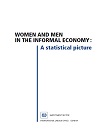 Women and Men in the Informal Economy: A Statistical Picture (2002), prepared for the 90th session of the International Labour Conference in 2002 – This publication, written by Martha Chen and Joann Vanek for the ILO, provides a statistical picture – using available national data – of the informal economy worldwide. It is mainly based on a compilation of official statistics by Jacques Charmes and his development of the residual method to prepare estimates of informal employment where direct measures are not available. It also includes case studies of India, Mexico and South Africa, which were prepared by national experts.
Women and Men in the Informal Economy: A Statistical Picture (2002), prepared for the 90th session of the International Labour Conference in 2002 – This publication, written by Martha Chen and Joann Vanek for the ILO, provides a statistical picture – using available national data – of the informal economy worldwide. It is mainly based on a compilation of official statistics by Jacques Charmes and his development of the residual method to prepare estimates of informal employment where direct measures are not available. It also includes case studies of India, Mexico and South Africa, which were prepared by national experts.
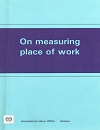 On Measuring Place of Work, ILO 2002 – the report of a collaborative project with the United Nationsl Statistics Division and the ILO Statistics Bureau. The publication reports on methodological research and testing on the inclusion of the variable place of work in household surveys. An objective of the project was to improve the collection of data on home-based workers and street vendors.
On Measuring Place of Work, ILO 2002 – the report of a collaborative project with the United Nationsl Statistics Division and the ILO Statistics Bureau. The publication reports on methodological research and testing on the inclusion of the variable place of work in household surveys. An objective of the project was to improve the collection of data on home-based workers and street vendors.
Other Activities
- Served on the ECE Expert Group on Measuring Quality of Employment, 2007- to present. The work of the task force includes a framework for monitoring quality of employment by countries and country pilot reports
- Participated in meetings of the International Expert Group on Informal Sector Statistics (the Delhi Group) – including the presentation of papers – from the second meeting held in Ankara in 1998 to the present. See a Brief history and purpose of the Delhi Group and a List of all meeting reports.
- Served on the Advisory Committee for a project on “Informality, Poverty and Growth: Labour Markets in China and India,” 2009-2010.
- Participated on a Steering Committee for the United Nations Development Accounts Project on Statistics on Informal Sector and Informal Employment, based at UNESCAP, 2006-2009.
- Contributed to the efforts of the Millennium Project Task Force on Women’s Empowerment and Gender Equality and the Sub-Group on Gender Indicators of the United Nations Interagency Expert Group on MDG Indicators (IAEG), which recommended a background indicator – gender differences in the structure of employment – for monitoring progress toward achieving equality in employment (MDG3) at the national level. This indicator includes data on status in employment, employment in agriculture and non-agricultural sectors, and formal and informal employment. See the background indicator found in the Report of the September 2005 IAEG Subgroup Meeting.
